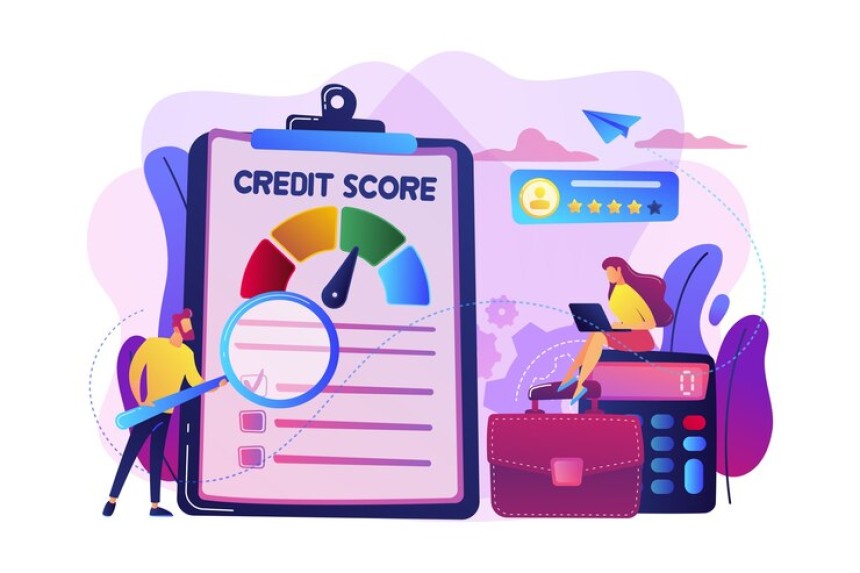
What Is The Most Accurate Credit Score?
Most people either see their Fico or Vantage Score. Both are used when applying for credit cards or loans.
What Is The Most Accurate Credit Score?Understanding your credit score is crucial for making informed decisions about loans, mortgages, and even rental agreements. However, the accuracy of credit scores can be confusing due to the various scoring models available. In this article, we will delve into the most accurate credit score, exploring how it is determined, its impact on financial decisions, and the key models that influence it.
Understanding Credit ScoresCredit scores are numerical representations of an individual’s creditworthiness. They are calculated based on credit reports provided by credit bureaus, which detail an individual's credit history, including loans, credit card usage, and payment history. The primary credit bureaus in the U.S.—Experian, Equifax, and TransUnion—compile and report this data to create credit scores.
The Key Credit Scoring ModelsSeveral credit scoring models are used to generate credit scores, but the two most prominent are FICO® and Vantage Score®. Each model has its own methodology for assessing creditworthiness, which can result in variations in credit scores.
- FICO® Score
- History and Usage: The FICO® Score, developed by Fair Isaac Corporation, is one of the oldest and most widely used credit scoring models. It has been in use since 1989 and is utilized by the majority of lenders to make credit decisions.
- Scoring Range: FICO® Scores range from 300 to 850, with higher scores indicating better creditworthiness.
- Components: The FICO® Score is calculated based on five key factors:
- Payment History (35%): Timeliness of payments on credit accounts.
- Amounts Owed (30%): Total debt and credit utilization ratio.
- Length of Credit History (15%): The duration of your credit accounts.
- New Credit (10%): Recent credit inquiries and newly opened accounts.
- Credit Mix (10%): The variety of credit types used (e.g., credit cards, installment loans).
- Vantage Score®
- History and Usage: Developed by the three major credit bureaus (Experian, Equifax, and TransUnion) in 2006, Vantage Score® was created as an alternative to FICO®. It is gaining popularity but is not as widely used as FICO®.
- Scoring Range: Vantage Score® also ranges from 300 to 850.
- Components: The Vantage Score® model evaluates creditworthiness based on similar factors but with slightly different weightings:
- Payment History (40%): The impact of missed or late payments.
- Age and Type of Credit (21%): The age of credit accounts and types of credit used.
- Credit Utilization (20%): The ratio of current credit card balances to credit limits.
- Total Balances/Debt (11%): Total outstanding debt.
- Recent Credit Behavior (5%): Recent applications for credit and credit inquiries.
- Available Credit (3%): The amount of credit available relative to the credit limit.
The question of which credit score is the most accurate often depends on the context in which it is used. Both FICO® and Vantage Score® are highly reliable, but their accuracy can vary depending on the scoring model used and the specific credit behavior it is evaluating.
- FICO® Score Accuracy
- Industry Standard: The FICO® Score is considered the gold standard in the credit industry. It is used by the vast majority of lenders, making it a key metric for assessing creditworthiness.
- Comprehensive Analysis: FICO® scores have a long track record and are based on detailed historical data. They are designed to predict the likelihood of a borrower defaulting on a loan, making them a trusted tool for lenders.
- Vantage Score® Accuracy
- Inclusivity: Vantage Score® has been praised for its ability to assess creditworthiness for individuals with less traditional credit histories, including those who are new to credit or have limited credit history.
- Modern Approach: Vantage Score® incorporates more recent credit behavior and utilizes advanced analytics to provide a nuanced view of credit risk.
Regardless of the scoring model used, the accuracy of your credit score is influenced by several factors:
- Credit Report Accuracy
- Error Checking: Inaccuracies or errors in your credit report can affect your credit score. Regularly reviewing your credit reports from the three major bureaus can help identify and rectify any discrepancies.
- Credit Utilization
- Managing Debt: High credit card balances relative to credit limits can negatively impact your credit score. Maintaining a low credit utilization ratio (preferably below 30%) is crucial for a positive credit score.
- Payment History
- Timely Payments: Consistently making on-time payments is one of the most significant factors in determining your credit score. Late payments or defaults can significantly lower your score.
- Credit History Length
- Account Longevity: The longer your credit history, the more favorable your credit score is likely to be. Keeping old accounts open can positively influence your credit score.
Credit scores play a pivotal role in various financial decisions, including:
- Loan Approval
- Interest Rates: A higher credit score can result in lower interest rates on loans and mortgages, saving you money over time.
- Credit Card Applications
- Credit Limits: A strong credit score can increase your chances of being approved for credit cards with higher limits and better rewards.
- Rental Applications
- Landlord Decisions: Many landlords use credit scores to evaluate potential tenants. A higher score can improve your chances of securing a rental property.
When evaluating the most accurate credit score, it is essential to recognize that both FICO® and Vantage Score® models are highly reliable but serve slightly different purposes. FICO® Scores are more widely used by lenders, making them the standard for many credit assessments. However, Vantage Score® offers a modern approach that can be particularly useful for assessing individuals with limited credit histories.
Ultimately, the accuracy of your credit score depends on the quality of your credit report and your credit management practices. Regularly monitoring your credit reports, maintaining low credit card balances, and making timely payments are crucial steps in ensuring a favorable credit score. Whether you are aiming for a higher FICO® Score or a robust Vantage Score®, understanding and managing your credit effectively will lead to better financial opportunities and decisions.





